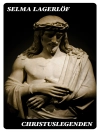In ‘A Treatise on Christian Liberty, ‘ Martin Luther explores the profound relationship between faith and freedom, articulating how true Christian liberty transcends both temporal constraints and spiritual bondage. Written in the early 16th century amid the socio-religious upheaval of the Reformation, Luther employs a polemic yet pastoral tone, deftly intertwining theological insights with practical implications for everyday life. The treatise challenges conventional notions of piety and legalism, asserting that genuine liberty is found in the grace of God and relationship with Christ, which liberates believers from the burden of sin and the constraints of the law. Martin Luther, a pivotal figure in the Protestant Reformation, drew from his own struggles with guilt and salvation to pen this influential work. His theological development, rooted in the personal experience of divine grace, led him to challenge the prevailing ecclesiastical authority of his time. This treatise is not only a culmination of his theological reflections but also a testament to his enduring conviction that faith alone confers true freedom. This book is essential for those seeking to understand the foundational principles of Protestant thought and the transformative power of Christian liberty. Readers will find in Luther’s work an invitation to embrace a faith that empowers and liberates, making it a profound resource for both spiritual introspection and scholarly discourse.
关于作者
Martin Luther (1483–1546) was a seminal figure in the Protestant Reformation, which radically transformed the landscape of Christianity in the 16th century. Luther was a German monk, theologian, and professor at the University of Wittenberg. His profound theological writings and teachings contributed to shaping the principles of the Lutheran tradition and Protestantism at large. His confrontation with the Catholic Church’s practices, most famously through his Ninety-Five Theses in 1517, challenged the authority of the Pope and the doctrine of indulgences. As an author, Luther’s ‘A Treatise on Christian Liberty’ (1520), also known as ‘On the Freedom of a Christian’, is one of the most influential of his writings. In it, he expounds on the doctrine of justification by faith alone and the believer’s inner freedom in Christ. The text is a cornerstone work for understanding Lutheran theology and underscores the paradox of the Christian’s life as both a free sovereign, above all things, and a dutiful servant, subject to all. Luther’s literary style is characterized by its robust and candid rhetoric, making his works accessible and compelling. He was also instrumental in the translation of the Bible into German, which had a profound impact on both the German language and the dissemination of the Scriptures to ordinary people (Luther, M. A Treatise on Christian Liberty. 1520). Luther’s contributions to religious literature, the empowerment of individual faith, and the shaping of early modern Europe are undeniably profound and continue to be of great importance to theologians and historians alike.












